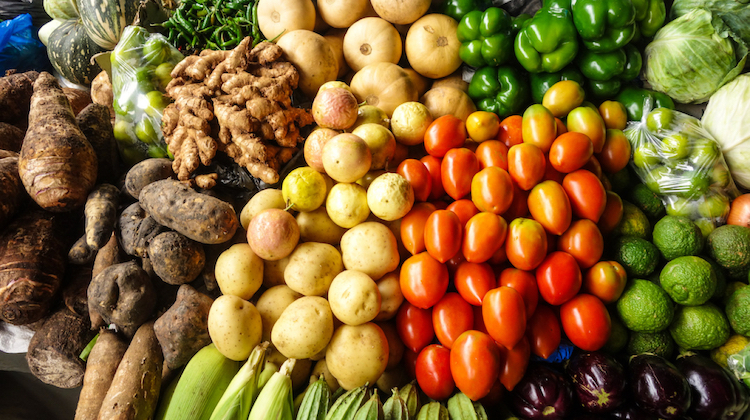By Douglas Okwatch
This report is a slightly modified version of the original published in the January 2024 issue of Africa Renewal.
NAIROBI | 3 February 2024 (IDN) — Digital technologies will be key in addressing the three persistent problems in Africa’s agricultural industry—inefficiency, exclusivity, and unsustainability, according to the 2023 Africa Agriculture Status Report, “Empowering Africa’s Food Systems for the Future”.
The report is by AGRA (Alliance for Green Revolution in Africa–an Africa-led organisation that seeks to catalyze agriculture transformation on the continent through innovation.
There is already evidence that Africa’s agriculture is on the way to becoming more efficient, inclusive and sustainable, the report observes.
But, in spite of the technological gains, food insecurity is worsening in Africa as chronic undernourishment increases and numerous countries face acute food shortage triggered by a combination of factors, including the Ukraine crisis and climate change.
The report aptly captures this situation. In 2022, for instance, the prevalence of under-nutrition in Africa was 19.7 per cent, a slight increase from 2021, the report shows.
In 2022, the prevalence of hunger also rose across Africa with hunger increasing from 22.2 per cent to 22.5 per cent in sub-Saharan Africa, which translates into 9 million more people experiencing hunger compared to 2021, adds the report.
Citing the Food and Agricultural Organization (FAO), Global Network Against Food Crises (GNAF), Market Data Insight for Actionable Strategy (FSIN), and Oxfam International, the report says the prevalence of under-nutrition in North Africa rose from 6.9 per cent to 7.5 per cent with nearly 2 million more people facing hunger in 2022.
The nature of food systems in the region, it notes, is characterized by underdeveloped markets and is driven primarily by smallholder farmers who operate on small and fragmented farms.
How can this be?
Experts from the International Food Policy Research Institute (IFPR) pointed to underdeveloped markets and the struggles of “smallholder farmers who operate on small and fragmented farms.”
The good news is these experts already see evidence of digitalization’s positive impact on the efficiency, inclusiveness and sustainability of African agribusinesses.
The launch of this report before some 5,400 delegates from over 90 countries gathered for the 2023 Africa Food Systems Forum, themed “Recover, Regenerate, Act” in Dar-es-Salaam, Tanzania, offered some hope to Africa.
It took place against the backdrop of extreme weather events, recurring crop disease, inadequate infrastructure and policies, risk averse investors and ongoing conflicts, which have disrupted food and energy markets.
Forum participants acknowledged the continent’s current status, but they refused to accept it as the status quo.
Instead, they resolved to “harness Africa’s potential” by engaging youth in sustainable food production; adopting regenerative farming methods at local levels; collaborating across borders, sharing good practices and pooling resources to lift up smallholder farmers.
They also agreed to improve soil health, grow more nutritious crops, and include women and marginalized communities in all these efforts.
To support all these, countries are to pursue innovative financing strategies and embrace “digital technologies, e-commerce and innovative market platforms.”
Digitalization supports larger goals and aspirations
The Organization for Economic Cooperation and Development (OECD) in its report, Going Digital: Shaping Policies, Improving Lives, defines digitalization as “the use of digital technologies and data as well as interconnection that results in new or changes to existing activities” in, say, food systems.
Digital technologies and related products and services can transform production, management, and governance systems.
By “going digital,” Africa can align its food systems with SDG 2: Zero Hunger, to achieve food security, improve nutrition and promote sustainable agriculture.
Digitalization also resonates with the African Union Agenda 2063, which aspires to “a prosperous Africa based on inclusive growth and sustainable development … underpinned by science, technology and innovation,” with “healthy and well-nourished citizens” and “modern agriculture for increased proactivity and production.”
Electricity to power agricultural change
To power digital transformation, the continent requires cheap, adequate and reliable energy. Africa’s energy paradox—scarcity amid plenty—poses a different challenge to digitalizing its food systems.
In its African Economic Outlook 2022, the African Development Bank reported that, to deliver electricity to the nearly 1.3 billion Africans, some 645 million of which are off the grid, the continent needs investments of $32–$40 billion annually in the energy value chain.
Without universal access to electricity, the rollout of digital innovations in agriculture across Africa has been uneven. Even so, many countries are making progress.
In the 2023, Africa Agriculture Status Report, the IFPR experts pointed out some success stories, where smallholder farmers were already accessing real-time pricing information, conducting secure financial transactions and linking to other members of their value chain. [IDN-InDepthNews]
Photo source: Africa Renewal
IDN is the flagship agency of the Non-profit International Press Syndicate.


